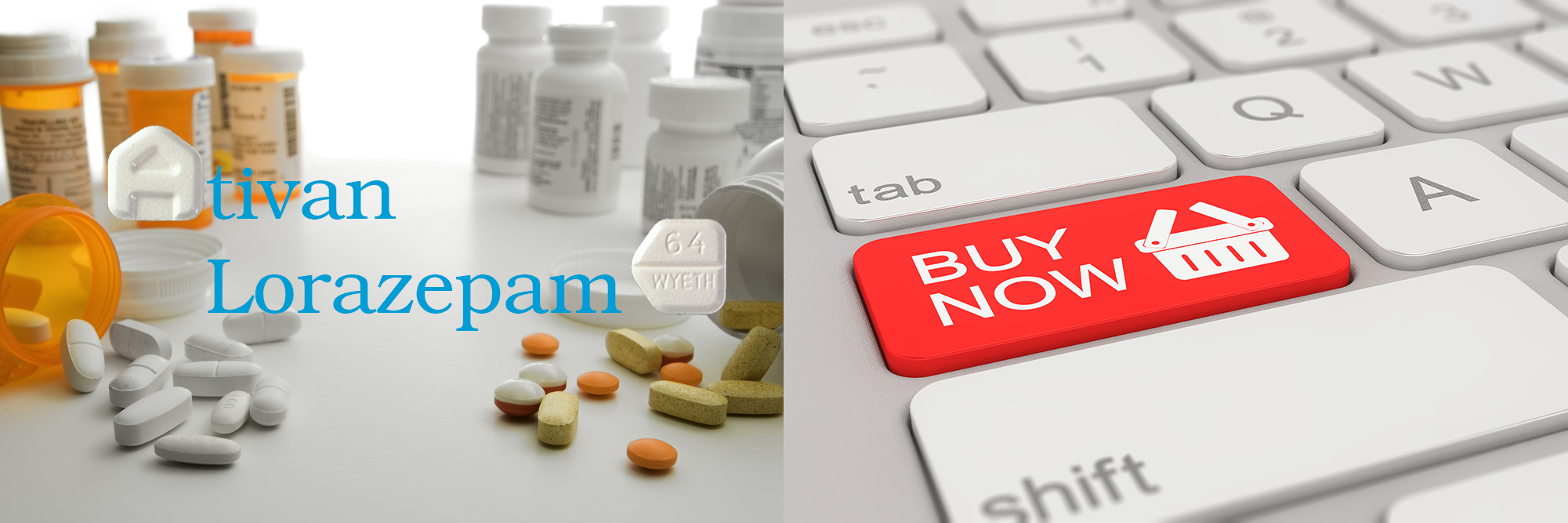Best Offers to Buy Ativan (Lorazepam) Without Prescription

How to Take Ativan (Lorazepam)? Risks of Addiction
When the first benzodiazepines were developed, little was known about their addiction risks. They were considered a totally safe alternative to barbiturates, which used to have the leadership as a treatment for seizure disorder and anxiety. However, practice showed that while providing numerous beneficial effects, benzodiazepines also bore certain risks.
Ativan (Lorazepam) is a potent preparation with a pronounced anxiolytic effect, intended for short-term use in people suffering from anxiety and insomnia. However, these are only a few of the medical conditions Ativan can help. The preparation also works well for preventing seizures, soothing the symptoms of alcohol withdrawal and severe agitation. Ativan injections are used for sedation and interference with memory formation in those undergoing major surgery.
Dosages of Ativan. Typical Doses for Anxiety and Insomnia Treatment
The main thing to mention before we get down to the dosages is that Ativan (Lorazepam) is a prescription-only medication. A visit to the doctor’s office is required to begin the therapy with this medication.
When used outside the hospital, your doctor will recommend taking Ativan in tablet form. The drug is available in three dosage strengths: 0.5 mg, 1 mg, and 2 mg. These figures reflect the amounts of lorazepam, the active substance in Ativan, in each pill.
Typically, the targeted daily dosage of the drug is reached by gradually titrating up the starting dose of the medication. Such a tactic is usually used by doctors to avoid adverse reactions. By the time you achieve the recommended dose, your body gets adjusted to the effects of Ativan and doesn’t respond to the therapy with unwanted reactions.
The size of the dose depends on your medical condition and other individual peculiarities like age, any liver/kidney disease, etc. The daily dosage ranges from 2 to 6 mg, though, in some people, dosages up to 10 mg per day might be necessary.
The daily dosage of the drug should be divided into several doses. For instance, your daily dosage is 2 mg. You should take 0.5 mg in the morning and at noon, leaving a 1 mg dose for bedtime. Such an approach will allow you to reduce daytime sleepiness and make it easier for you to fall asleep in the evening.
Your healthcare provider may offer the other scheme of Ativan intake, yet the one described here is typical.
General Recommendations on Ativan Intake
While your doctor’s prescriptions are more specific for your case, we’ll list some general advice on how to take Ativan (Lorazepam). They will help you avoid typical mistakes and go through the therapy with minimum or no problems.
- Take Ativan orally, either with or without a meal. Food doesn’t affect the absorption of the drug, so its effectiveness doesn’t change.
- It’s better to take Ativan at even spaces of time, at the same hours daily. This will help sustain stable levels of Lorazepam in the body fluids, thus increasing the effectiveness of the therapy.
- Stick to the lowest effective dosage and never increase it without consulting a doctor. Otherwise, you risk building up a tolerance to the drug and developing a dependence.
- At the emergence of any severe side effects, contact your healthcare provider for advice.
- Ativan may provoke paradoxical reactions, which is the worsening of the symptoms of your disease. Inform your doctor about such a reaction right away.
- To stop taking Ativan, reduce the dose gradually. Abrupt discontinuation of treatment may trigger a withdrawal syndrome.
- Remember, Ativan is indicated for short-term use, so don’t take it longer than 4 weeks.
Addiction Risks
Ativan (Lorazepam) is a medication with high addiction potential. Tolerance to the drug is formed gradually, so there’s no way you may feel you’ve become Ativan dependent. However, there exist some distinctive signals saying that you might have a problem with this medication.
- You feel the effects less pronounced than they used to be.
- You need a higher dosage to reach the desired effect.
- The intake of Ativan negatively affects your interpersonal relations at home, work, etc.
- Your behavior and psychological state change.
The only way to go through the treatment safely and step off Ativan with no withdrawal is by carefully following your doctor’s recommendations. However, even this doesn’t give a 100% guarantee.
Summing up
You shouldn’t refuse treatment with Ativan (Lorazepam) or any other benzodiazepine just because of the risks. Remember that your doctor weighs all the benefits and risks before giving you a recommendation for Ativan use. If you have a prescription for the drug, it means that your doctor considers it will bring you more benefit than harm.
A Few of Our Trusted Clients













